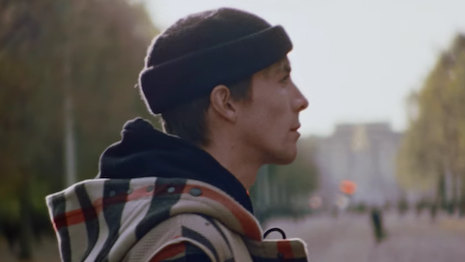 Luxury brands are implementing technology to learn about their customers. Image credit: Facebook
Luxury brands are implementing technology to learn about their customers. Image credit: Facebook After many feared immense damages to the luxury sector at the beginning of the COVID-19 pandemic, experts are now lauding luxury’s continued success.
During a workshop at Launchmetrics’ Performance digital summit on Jan. 20, Launchmetrics’ vice president of marketing Gina Gulberti spoke with Google's head of luxury Rupi Goel about the ways in which luxury can continue thriving. Fostering ecommerce offerings and experiences, maintaining transparency and connecting with consumers through personalization are critical.
“Thinking of the growth mindset to just keep testing, keep learning and keep asking for more — really stood out,” Google’s Ms. Goel said. “[Successful brands] really thought about the digital capabilities, [and] they really thought about investing in that dialogue with the customers.
“And they weren't shy; they weren't waiting for perfection to progress,” she said. “They were actually progressing over perfection — that growth mindset.”
Building off momentum
Several tactics employed by luxury brands are working, including implementing technology to learn about their customers.
Consumers want to be met where they are, and some brands are utilizing tools to understand what their audiences are looking for.
 Artificial intelligence and machine learning are increasingly important aids in marketing and retailing decision-making. Image credit: Pattern89
Artificial intelligence and machine learning are increasingly important aids in marketing and retailing decision-making. Image credit: Pattern89
Last year, New York-based beauty brand Il Makiage announced it had invested more than $40 million to acquire deep-tech AI–based computer vision startup Voyage81. With the acquisition, Il Makiage plans to use Voyage81’s hyperspectral imaging software to further enhance the company’s machine learning capabilities (see story).
Customer intent platform Lily AI has worked with brands and retailers including U.S. department store chain Bloomingdale’s, resale platform ThredUp and premium sustainable apparel brand Everlane to identify what unique shoppers want. The solution is now available globally, assisting brands and retailers in improving on-site search, personalized product discovery, recommendations and demand prediction (see story).
“What we saw over the pandemic is that the brands that invested in automation started succeeding,” Ms. Goel said. “The brands that started investing in automation started doing much better and started responding to those [consumer] demands.”
Implementing advanced technology like machine learning and AI can be crucial in helping outlets identify what is resonating and what is not working with consumers.
Shoppers also have an affinity for storytelling. They enjoy the entertainment aspect and seeing their values reflected in their favorite brands.
 Several brands have taken to releasing emotional campaigns. Image credit: Burberry
Several brands have taken to releasing emotional campaigns. Image credit: Burberry
In one emotive push, Burberry asked strangers to reflect on their own lives and share their perceptions of what it means to be happy.
The campaign worked in collaboration with TikTok account and documentary @AreYouHappy, which explores the varying definitions of happiness by inviting total strangers to share what moves them in life, and equally what holds them back. Especially as the world enters year three of the COVID-19 pandemic, Burberry aims to remind people that happiness is achievable (see story).
Gen Z, referred to as “the consumer of today” during the workshop, has high expectations of brands. They want to be entertained and feel understood.
Successful brands are those that are living up to those expectations in reflecting consumer values and furthering emotional connectivity.
“Luxury has always been about storytelling, and how you build that connection with the customers,” Ms. Goel said.
Seeking experiences
Although when done correctly, ecommerce can help brands thrive. This does not necessarily mean that consumers are abandoning their in-person shopping trips, however, as they still seek the unparalleled and tangible feelings of in-person shopping.
De Beers’ new London store has been inspired by its commitment to “Building Forever.” It is located at 45-50 Old Bond Street, next to its previous location, and meets LEED environmental standards in line with its sustainability views.
In-store and virtual appointments are also available for shoppers looking for engagement rings, aftercare services, bespoke pieces and more (see story).
As innovative and thoughtful pop-up shops have also emerged, offering experiences rather than just transactions. With sustainability and innovation in mind, brands and retailers including Burberry, Bloomingdale’s and Nordstrom are producing pop-ups that represent their ethos and values and promote nature and activity, while also providing unique shopping experiences (see story).
“We don't think the stores will disappear, they will still continue to be really important and play kind of dominant role as well,” Ms. Goel said. “Customers are really looking for experiences and entertainment and engagement of some sort.
"Selfridges and Harrods are doing amazing things where they're building restaurants and building beauty bars,” she said. “They're trying to build those immersive experiences in their stores to engage the customers who walk in.”